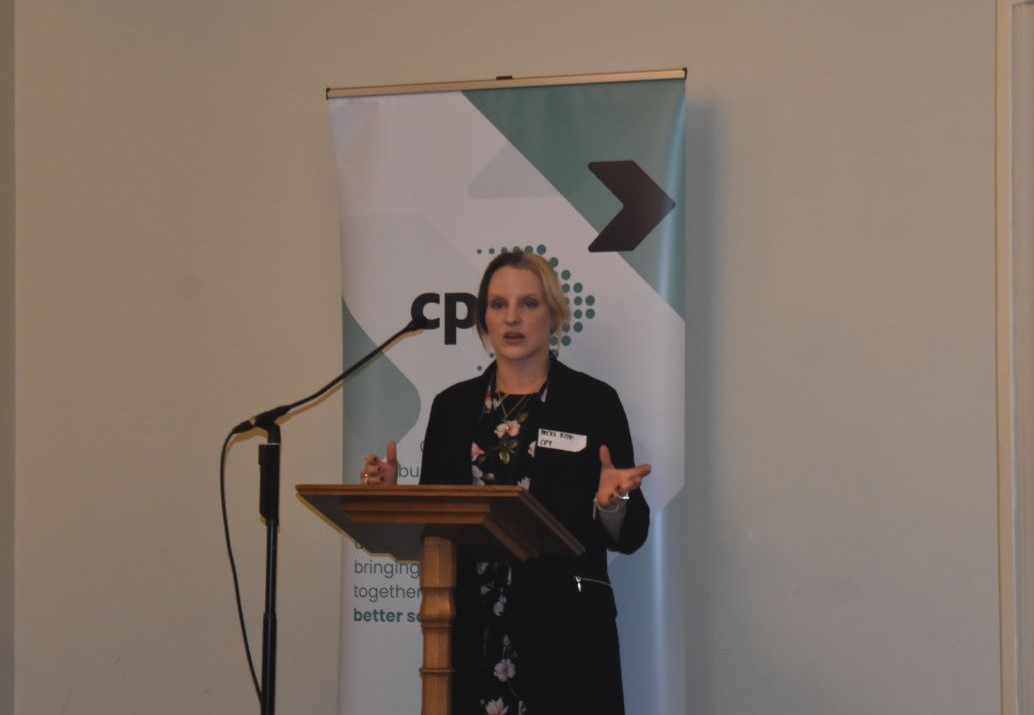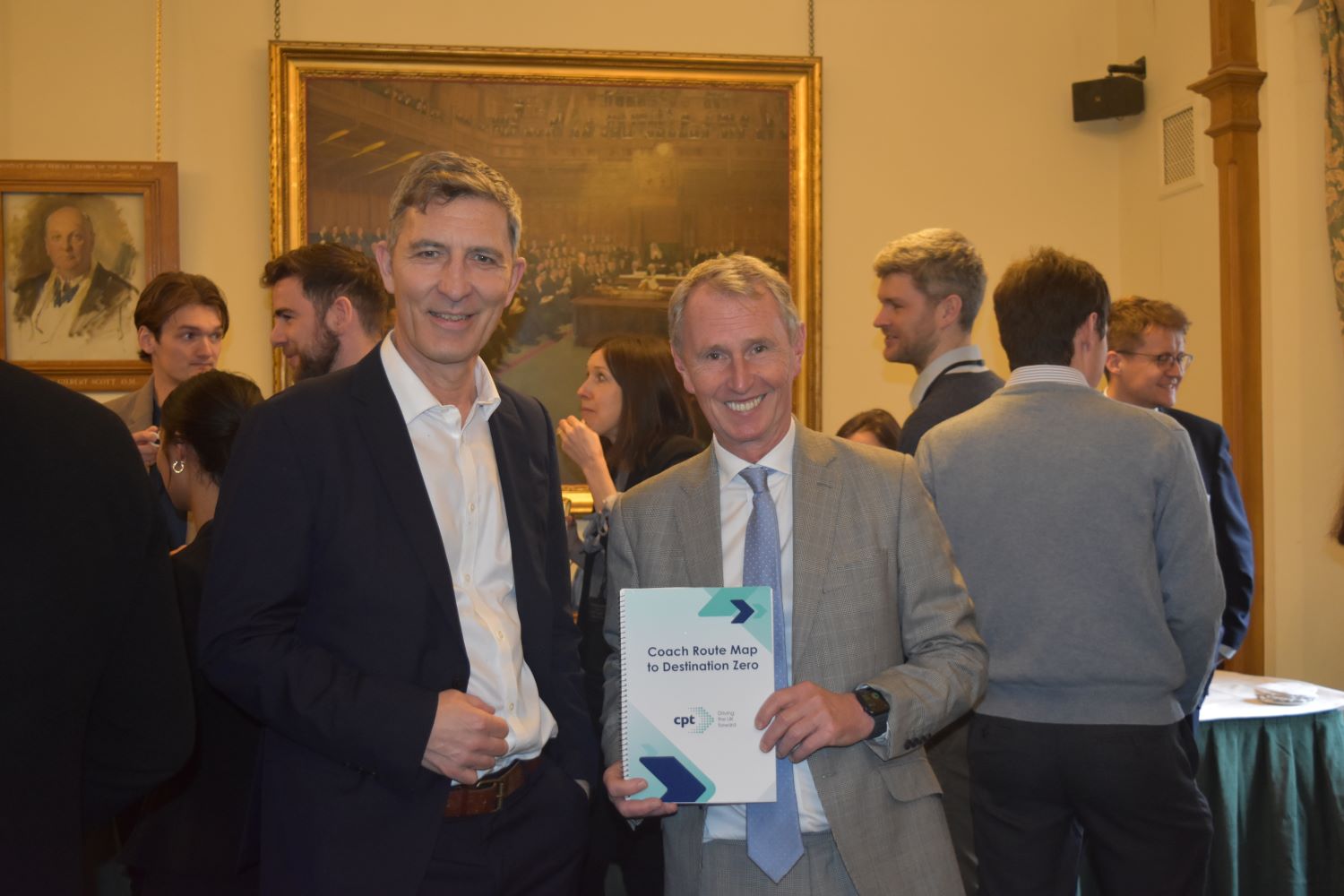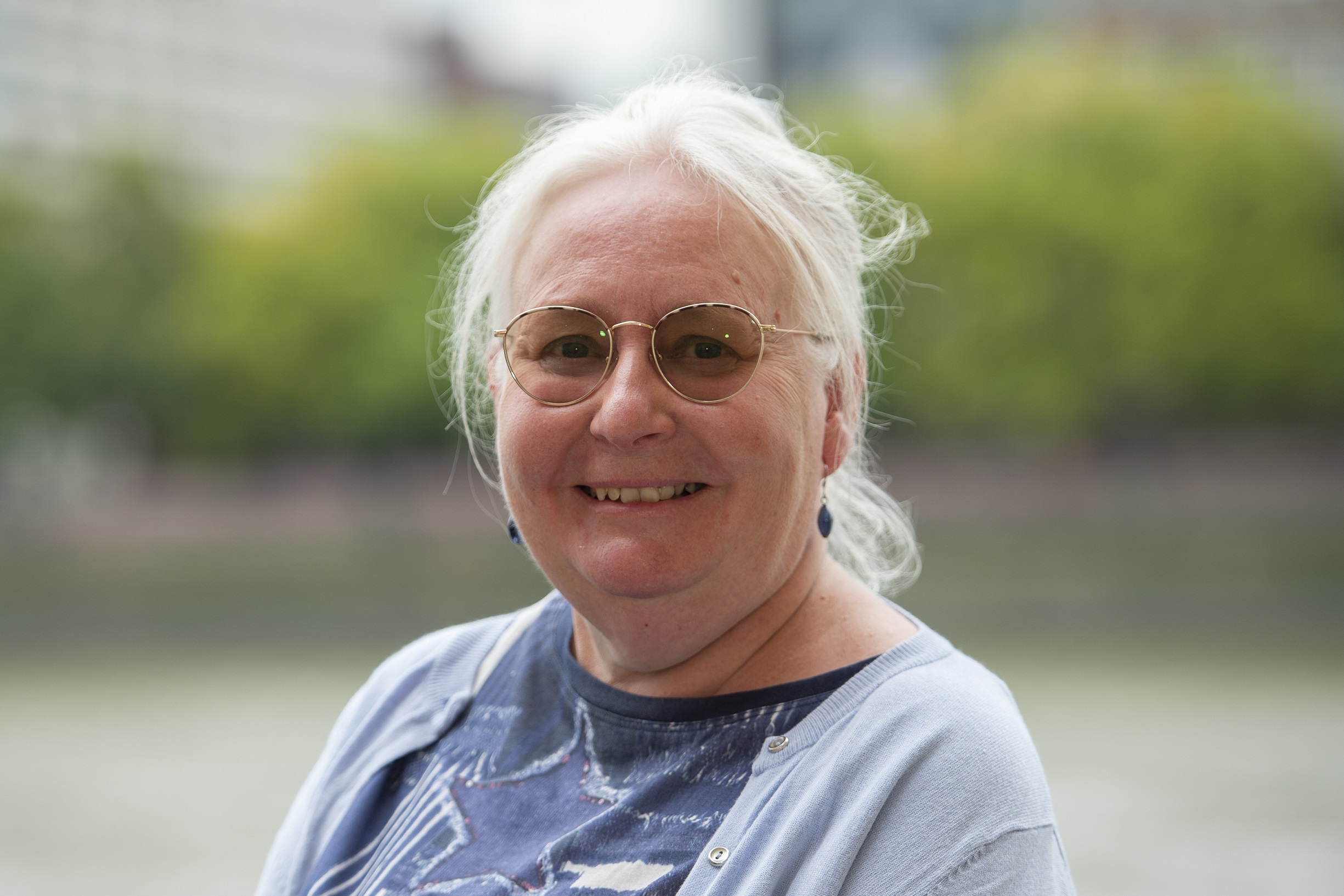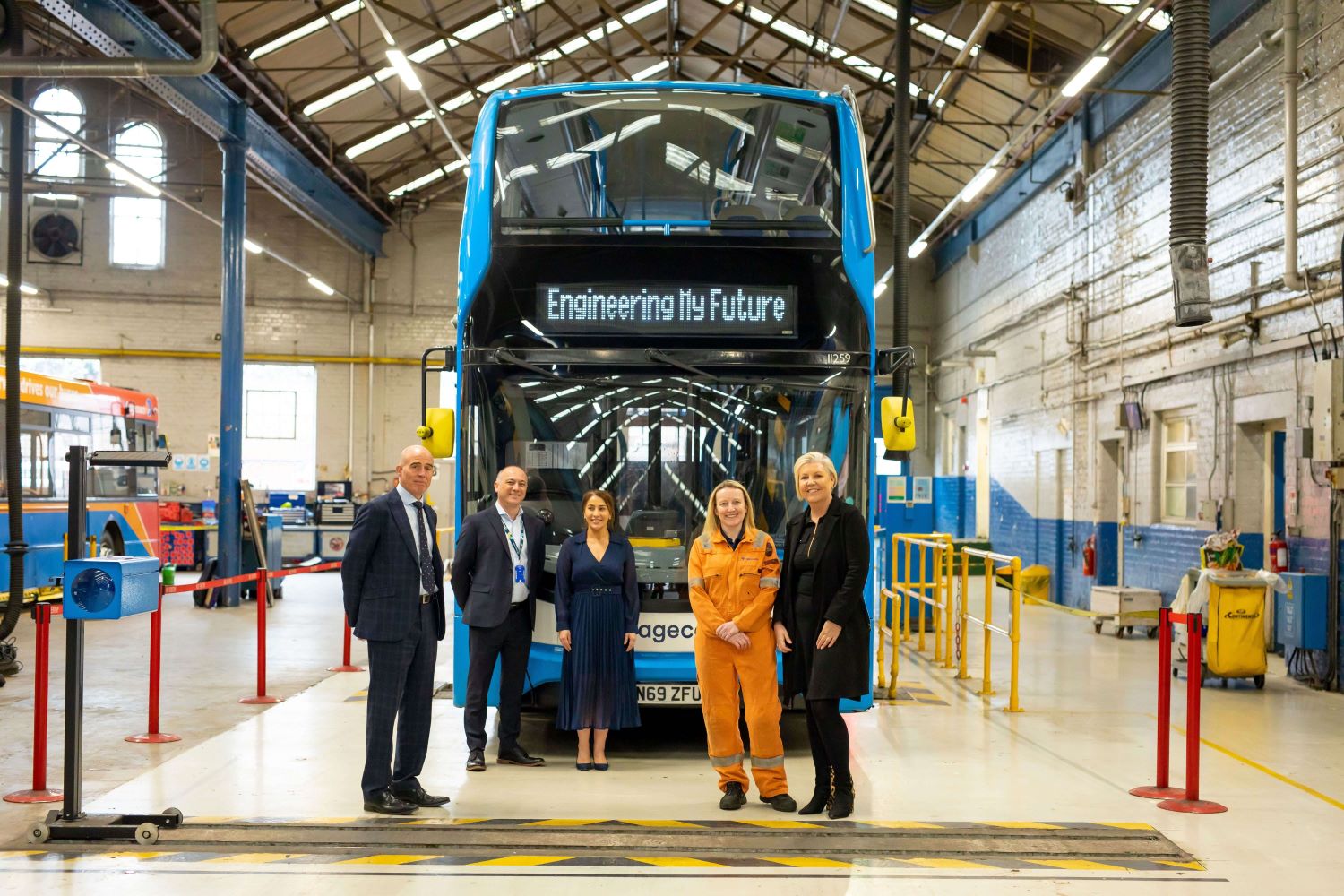Graham Vidler, Chief Executive of the Confederation of Passenger Transport (CPT), is confident the coach industry will be ready for the end of non-zero-emission vehicles sales but has called on the government to implement low-cost actions now to support the switch.
Mr Vidler was speaking yesterday at the launch of the second report from the Zero Emission Coach Taskforce (ZECT) at the Houses of Parliament.
In the paper Coach Route Map to Destination Zero, the Taskforce urged the government to consider a fuel duty incentive for operators to use low-carbon alternatives such as hydrotreated vegetable oil (HVO) as an interim measure, investigate raising the axle weight limitations to offset lost payloads for zero-emission powertrains, provide funding for zero-emission coach trials and boost charging infrastructure across the country.
The report also called for clarification on key dates as currently the Transport Decarbonisation Plan, which sets out the government’s commitment to phase out sale of non-zero emission vehicles by 2040, does not specify the timeline for coaches.
At the event hosted by Nigel Evans MP, Mr Vidler said of his confidence the industry would meet the challenges of the transition: “No doubt we’ll get there in time — whatever time turns out to be.
“Something I hear from my members is we’re already the greenest way of travelling around the country. We want to keep that competitive advantage and, by thinking about the issues in advance, which is what this report tries to do, we’ve got every chance of getting there and everyone across the industry is absolutely committed to doing so.”
He believes the government is doing “what we’d want government to be doing at this point” but spoke about the need for action soon.
“I think there a couple of low or no-cost things that they could be doing now, well ahead of looking at the future support needs of the industry,” he said. “Things like getting some amendments to the vehicle weight regulations ready so that we can accommodate the increased payload of carrying batteries or carrying hydrogen storage tanks.
“Also, enabling us to use hydrogenated oil, which is a big step on the way to reducing our emissions. Unfortunately, it’s also more expensive than diesel at the moment. If they can address that balance for us, we can make a big stride there not in 10 or 20 years’ time but in a few years’ time.”
Operators need more certainty
The report highlighted the financial challenge faced, given that 81% of the claimed around 2,500 coach operators in the UK are family or individually owned.
Green interim measures which are not 100% emission-free such as hydrogen as a combustion fuel, biofuel and HVO were raised. The latter can be used without engine modification.
ZECT also called for funding to support zero-emission vehicles and infrastructure in the same way the Scottish Zero Emission Bus challenge fund and Zero Emission Bus Regional Areas Funding has worked for bus. The Taskforce also suggests residual value guarantees would provide certainty for operators, given that it is expected batteries will achieve only 75% of its charge capacity after eight years.
Another consideration by government, ZECT said, should be increasing axle weights allowable. A one-tonne increase in what is allowed would enable operators to carry an additional five passengers, the report said.
The government was also called upon to expand zero-emission freight trials to include coaches so that operators could observe how the vehicles perform in real-world settings. This could be delivered by £50 million in funding, it is estimated.
The request was made for help in identifying funding streams for the £120,000 to continue the BluMarbl Data Project, which collects data on coach journeys which could be used to advise on infrastructure needs. Training for emergency services in dealing with incidents involving zero-emission vehicles and training to help drivers maximise economy should also be explored.
While the report stressed the commitment of the industry to work towards carbon-free, it highlighted its survey showing that only one in three operators planned to purchase a zero-emission vehicle in the next five years.
Ian Luckett, who chairs ZECT, recognises the challenges. Though unable to attend the launch, he said in a statement: “Whichever date is finally decided on for halting the sale of non-zero-emission coaches, there are significant challenges ahead. But challenges that can and will be overcome by collaboration with similar industries and understanding and support from government.
“This is something the industry has shown it is keen to lead on but it cannot do it alone. There are technological advances being made every day but it’s important we choose a path soon and understand the support and guidance this needs as the industry and its partner have lots to do before we can say we’re at or close to net-zero.”
Becki Kite: Infrastructure needed now

Becki Kite, CPT’s Policy Manager and the project manager for the report, highlighted the need for urgency. Following the publication of ZECT’s initial report last summer, she said challenges remain although, “we’re in a much more positive place now”.
“2040 does sound like a way off but, given these coaches operate for 10 to 15 years, we need decisions now,” she said. “We need the infrastructure, and industry needs a clear direction so they can make the investment plans for the future.”
Regarding axle weight regulations, she believes any changes would not cause issues for operators active in the European Union. “My understanding is the EU already has higher axle limitations so it would put us in line with that,” she said. “We’re going to do some research into this to make sure there are any safety implications and to demonstrate the benefit of it.”
Asked whether the proposals concerning interim low-carbon alternatives were an admission that the switch to zero-emissions could take longer than hoped for, she added: “It’s more about demonstrating what we can do now. We can wait for the technology to develop and we’ll get there more slowly or we can look at what we can do now that will significantly and immediately deliver a reduction of greenhouse gas emissions in the meantime.
“But, also, the benefit of low-carbon fuels is that a lot of them can go in existing fleet without any modifications, so it’s going to be very affordable as well.”



























